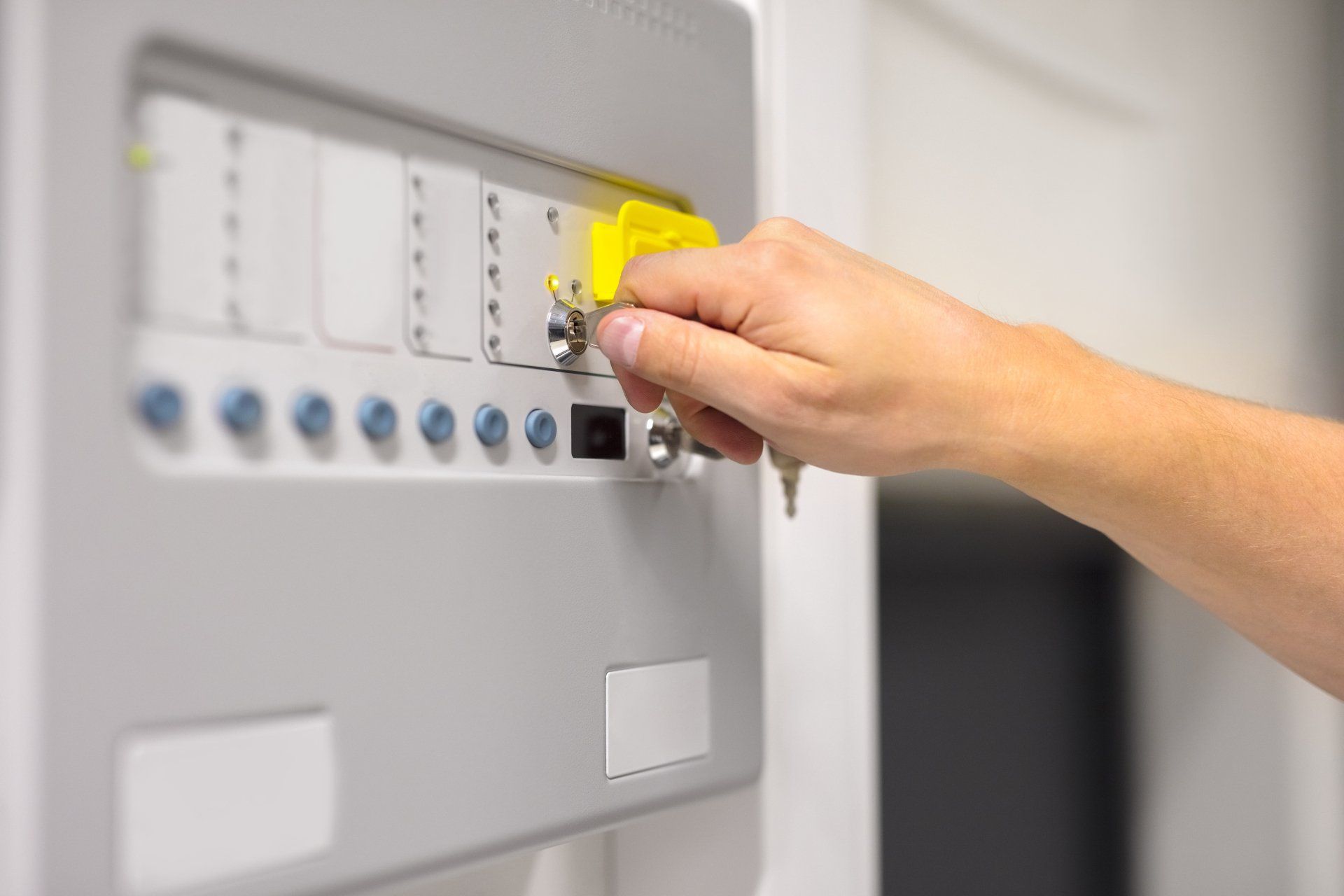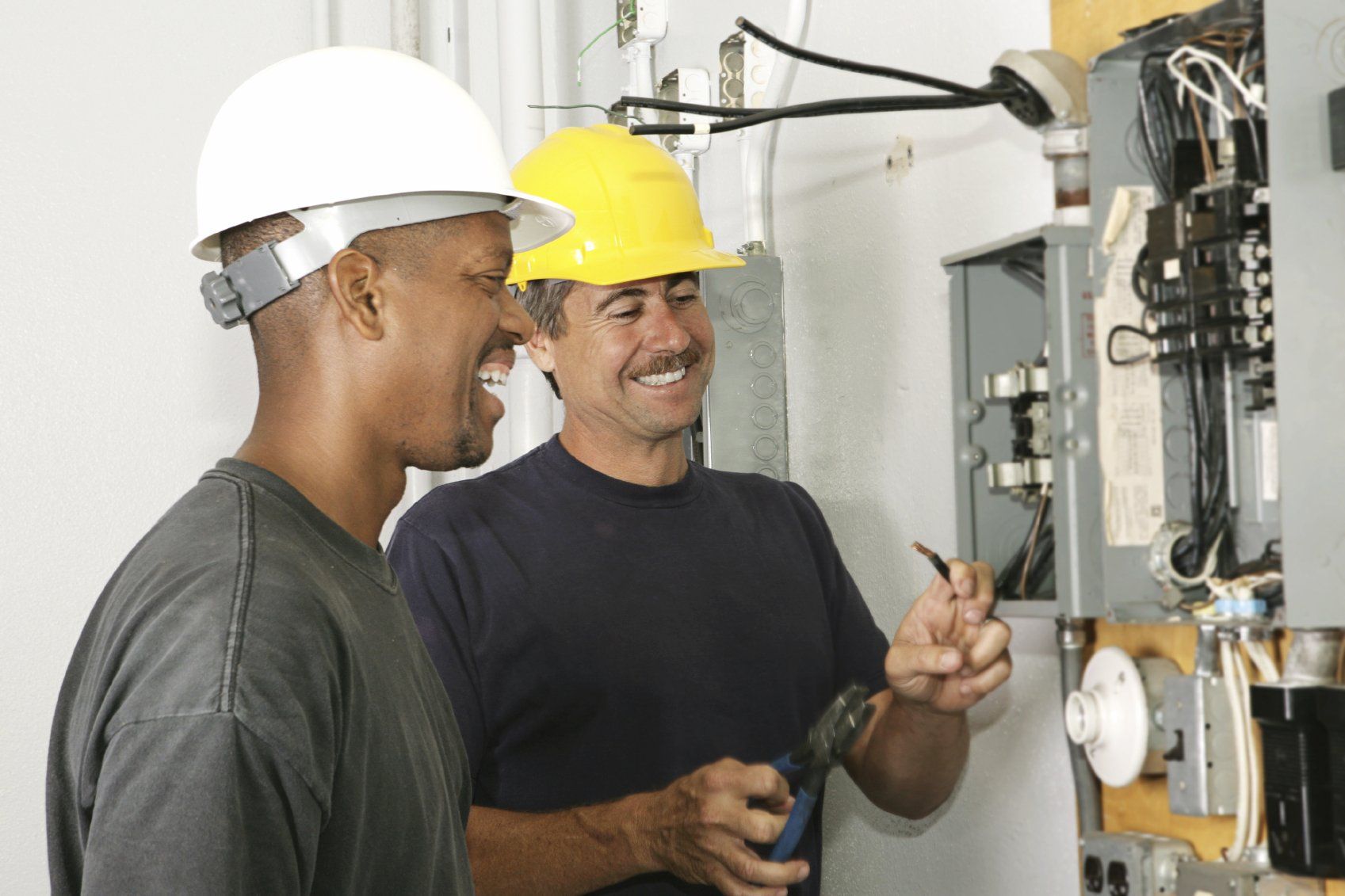Fire Detection & Fire Alarm Systems.
From the Inspection, Service & Maintenance of an existing system, to the Design, Supply, Installation, Commission & Handover of a new one, Check not only offer peace of mind when it comes to your compliance, but a one stop shop for all your fire safety requirements.
All Your Fire Safety Requirements in One Place
Technology
With ever changing products + solutions, Check constantly review new technologies and systems to ensure you always get the very best, tailored solution to fit your requirements
Experts
Our highly qualified team are here to guide you every step of the way, with system design, false alarm management, and training available to keep you and your staff compliant and working safely
WORKING TOGETHER
From initial consultation, through to handover
01
Design
From simple manual only, conventional systems to bespoke multi networked systems with graphic packages and everything in between, Check have you covered
02
Installation
Our expert installers ensure all our systems are installed to the highest standards and in accordance with Section 4 of BS 5839-1 & BS 7671 IET Wiring Regulations
03
Commission
Thorough testing of the installed system to ensure that it operates correctly in accordance with BS 5839-1 and with the purchasing specification. Commission only projects also undertaken.
04
Maintenance
Systems fully maintained to the recommendations of BS 5839-1 Clause 45.
Fully inclusive maintenance packages available
False Alarm Prevention + Management
All systems are fully inspected to assess potential false and unwanted alarms.
We provide training to manage and try to prevent such alarm events, and to train staff/occupiers to respond to investigate alarms properly.
False alarm management is the key to ensuring that all activations are responded to effectively and not disregarded as a nuisance activation.
New paragraph
-
VERIFICATION
System installed by others and you would simply like a second opinion? Why not take advantage of our expert team who will carry out an independent audit of the system to verify the installation and provide a verification certificate and report upon completion
ADDITIONS
Already got a system, just needs extending or maybe just some TLC?
Our Professional small works team have got you covered
REPAIRS
Is your system in fault? Does your system seem to activate for no reason?
Our expert technical team will try to resolve your issue over the phone first before dispatching an engineer
When is a Fire Detection & Fire Alarm System Required
The need for a fire detection and fire alarm system in any specific building is normally determined by the authority
responsible for enforcing fire safety legislation in that building and/or by a fire risk assessment carried out by the
owner, landlord, occupier(s) or employer(s), as appropriate. In general, it is appropriate to install some form of fire
detection and fire alarm system in virtually all buildings, other than very small premises that are relatively open planned, so that any fire is quickly detected by occupants, who will then be able to warn others by word of mouth or simple mechanical devices such as hand-operated bells.
Manual fire detection and fire alarm systems are often sufficient to satisfy legislation in workplaces in which no
one sleeps. Automatic fire detection is usually required by legislation to supplement the manual system in premises in which people sleep.
Automatic fire detection is also commonly used to protect property by ensuring the early attendance of the fire and rescue service, in response to summoning by occupants of the building or by transmission of fire alarm signals to an ARC (Alarm Receiving Centre) from where the fire and rescue service will be summoned. Automatic fire detection and fire alarm systems might, therefore, be required or recommended by the property insurers.
The early detection of fire by automatic means, and rapid summoning of the fire and rescue service in the event of
fire, is also important in premises in which people cannot readily be evacuated immediately. In certain premises of
this type (e.g. residential care premises), it is also important to give accurate and unambiguous information to staff
regarding the location of a fire.
If you need a fire detection and fire alarm system, are considering upgrading and/or adding to your existing system, or would simply like to learn more about fire detection and alarm systems or any fire safety element, why not give us a call today on 0800 066 2249
The most common types of fire detection & fire alarm systems that businesses use are conventional and addressable alarm systems. Both types of system link devices (such as call points and smoke detectors) to a main control panel. The main difference between the two is that with addressable fire alarm systems, you can pinpoint exactly which device has been activated.
The conventional alarm is also known as the zoned system and works with around 2 – 4 zone circuits although it can be expanded up to 36 zones. Each zone works with a 24VDC circuit and has on average 15 - 20 detection devices per zone. When a fire is detected, the alarm will tell you which zoned area has the fire – the fire alarm panel is unable to specify where the fire is exactly. In the case of large buildings where the conventional fire alarm panel may say for example ‘First Floor Zone’ this will not aid the fire brigade to find the fire quickly. This is why the modern addressable fire alarm was created.
The addressable fire system has a much more precise operating system – each individual detection device has its own identification address and so when a fire is detected by that device, its exact location can be transmitted to the addressable fire alarm panel, so the fire can be located instantly. This system has such specific information that it can transmit and for this reason it is becoming a popular choice for fire alarm installations.
Most addressable systems have the capability to use sophisticated programming to improve your fire alarm system so you can adapt and build the ideal fire alarm system for your needs, for example, one part of the site can be evacuated whilst another part of the site receives a warning only signal. Day Night programming, delays and “double knock” can also be programmed to reduce false alarms.
An addressable fire alarm installation can be more expensive than a conventional system. This is because it is more complicated, more sensitive and more specific a system than the zoned fire alarm systems however future modifications can be more cost effective.
Remember, choosing a fire alarm system isn’t just about adhering to legal requirements; it’s also about saving time, money and effort.
Confused About Protocol?
Like many, are you confused about fire alarm system protocol and which company is best for your system? Don't be! At Check, we have technicians with a wide range of training and experience from previous employers including Protec, ADT & Honeywell. Meaning our team are well equipped and competent to work on all systems no matter the protocol.









